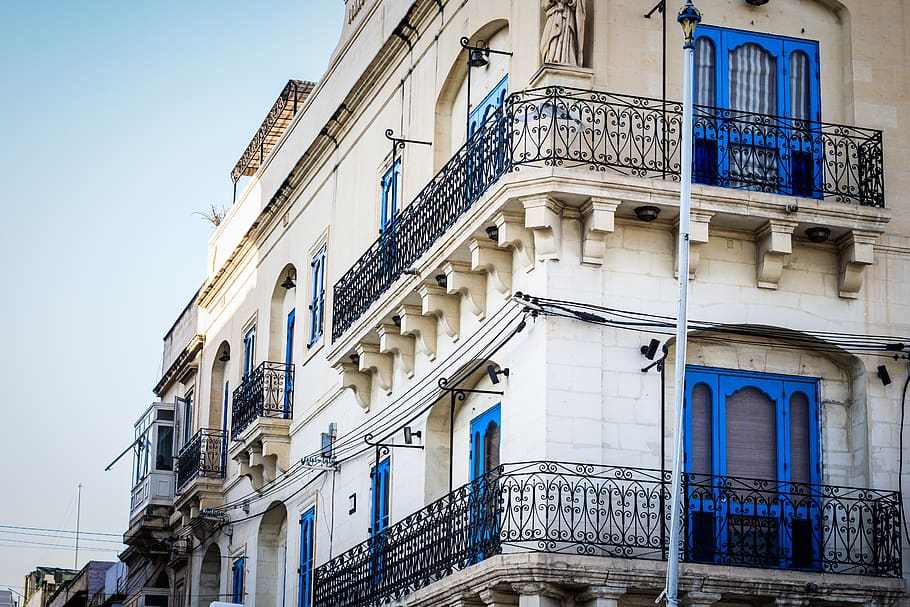2021 Budget: Key Highlights for Malta’s Property Market

New and improved incentives promise to reinvigorate the local property sector.
As always, the 2021 Budget focuses partly upon property for sale in Malta. Hence, it focuses on Malta’s real estate market. It introduces, modifies and extends incentives and schemes that will benefit both property buyers and sellers.
This year, however, the effects of the ongoing COVID-19 pandemic are being felt by every industry across the world – including Malta’s real estate sector. The newly announced measures included in the 2021 Budget promise to have a substantial impact on Malta’s real estate market, to boost confidence in property investment during this challenging time and propel the sector into the new year.
Here are the 2021 Budget’s main highlights for Malta’s real estate sector:
First-time buyers’ tax scheme improved
The current scheme encourages first-time buyers to take their initial steps to buy property in Malta. Now, the 2021 Budget is expanding and enhancing so that first-time home purchasers may take advantage of even better tax rates.

Previously, the property worth qualifying for a lower tax rate was limited to the first €175,000 via the plan; however, the Budget has increased this limit to €200,000 for first-time buyers. In reality, the Budget has improved on this incentive for the second time in as many years, with the initial ceiling set at €150,000.
The new money-saving incentive should inspire a wave of first-time buyers to take the plunge and buy now or invest, rather than waiting and perhaps losing out. The plan is to strengthen the local real estate and property market during the following year.
Reduced income tax and extended stamp duty scheme

Meanwhile, another highlight of the 2021 Budget is the extension and improvement of a noteworthy property incentive scheme – applicable to anyone purchasing a property and not just first-time buyers (second-time buyers are also included).
Any property purchased in Malta and Gozo that have a promise-of-sale agreement registered by 31 March 2021 and a contract executed by 31 December 2021 would benefit from significant tax and stamp duty savings under the plan. The income tax rate is set at 5% for the first €400,000 earned via the plan, while the stamp duty rate is set at 1.5 percent.
Aside from just extending the present plan until 2021, the Budget also makes a significant improvement by increasing the limit amount for lower rates from €150,000 to €400,000. This shift might result in significant savings for property investors across the Maltese Islands, as well as further opening up the market for first-time purchasers.
Better tax rates on property donation and inheritance

In addition, the Budget proposes a lower tax rate on property given as a gift. Furthermore, a 3.5 percent charge has been established for the inheritance of residential property.
On the first €250,000, any property gifted by parents to their children – who would thereafter use it as their primary abode – will be duty-free. This is a significant increase above the previous ceiling of €200,000. Any amount above €250,000 will be subject to duty at a rate of 3.5 percent.
Meanwhile, the 1.5 percent property transfer tax break that has been in place for the previous three years will be extended for another year.
These new tax advantages are expected to spark further market action in the next year. In the aftermath of the COVID-19 epidemic, families are anticipated to transfer property to take advantage of financial savings. Read more about Malta’s Economic Regeneration Plan Post-COVID.
Boosted foreign investment through tourism

Another effect of the epidemic has been the tourist industry on the island. Many governments have imposed curfews, and international movement has been severely curtailed. As a result, foreign investment in the local property market has been hindered since potential investors have not been able to personally experience the island’s many lifestyle perks.
As a result of the future Tourist Regeneration Strategy, which was announced as part of the 2021 Budget, more foreign investment in Malta’s real estate market might be fueled by a stronger tourism industry.
Nonetheless, the 2021 Budget favors local purchasers, who continue to account for the majority of house owners across the country.
At first look, the 2021 Budget does not appear to alter significantly from past years’ budgets. However, it distinguishes itself in one essential way: by providing timely enticing incentive packages — exactly when locals may be debating whether or not now is the appropriate moment to buy a home. Given the financial benefits of purchasing now rather than later as indicated in the 2021 Budget, the answer to that question might very well be a loud ‘yes.’
Contact a member of the RE/MAX Malta team now to learn more about how you may benefit from the property incentives contained in the 2021 Budget. Also, learn more about how RE/MAX can simplify the buying procedure of a property for sale in Malta.